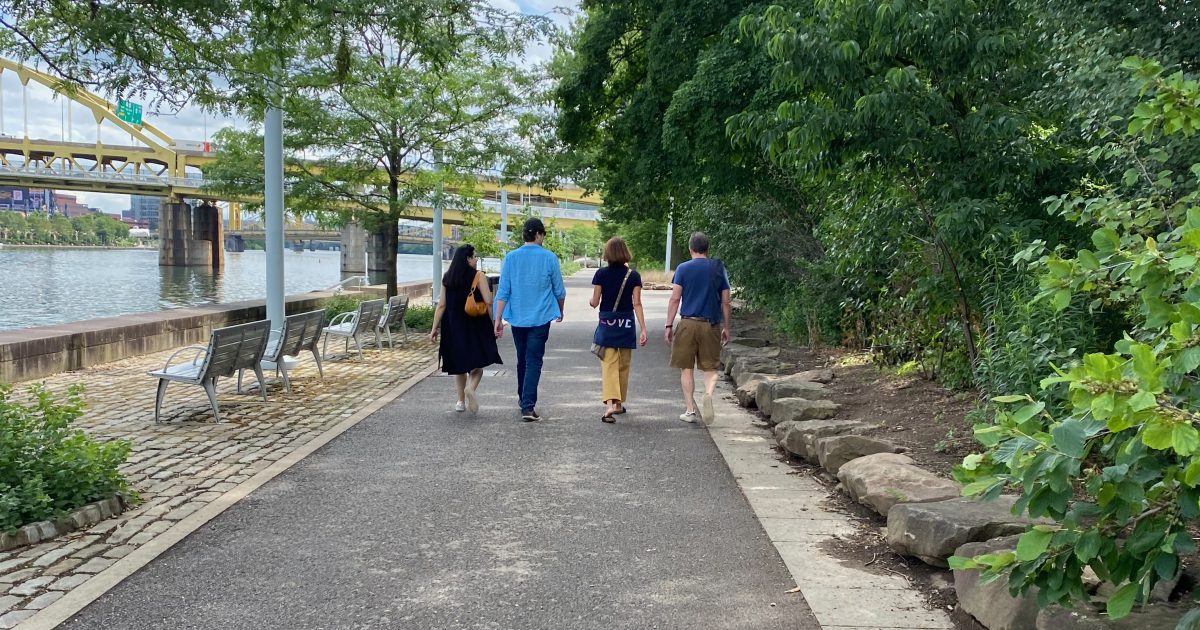Pittsburgh has 90 neighborhoods and commutes between them are frequent. Whether it’s for work or recreation, traveling between areas is essential to a resident — car or not.
In a new study published by StorageCafe, Pittsburgh ranked 3rd amongst 180 cities nationwide in car-optional living. The study evaluated the safety, walk-ride infrastructure, and transit options that contributed to the growing culture of transit accessibility StorageCafe describes as the “visible momentum of convenience” that came after the pandemic.
Pittsburgh not only ranked 3rd in nationwide car-optional living but 1st within the Northeast, ranking above New York, Buffalo, and Rochester. The study details the upheld legacy of walkability serving one out of four residents who already commute without a car, and says there’s momentum to serve more.
The study highlighted Pittsburgh’s transit system (ranked 16th nationally), Pittsburgh Regional Transit, and accessible infrastructure that supports walking and biking alongside policies aimed at keeping these modes of transportation safe. This includes Pittsburgh’s lowered speed limit and initiatives to raise sidewalks in pedestrian-heavy areas.
“The road is not just for pedestrians but bicyclists, people that want to roller skate, for interested adults who commute to work. It’s for children who want to play on the street and that’s okay,” said Adam Randolph, who directs communications at PRT.
Additional analysis indicates Pittsburgh also ranks high in access to amenities as the city offers 5.5 restaurants per 1,000 residents.
Randolph reports Pittsburgh is working to continue to develop and modernize transit with new projects and street maintenance. He said PRT is taking action to redesign the bus network that reflects the needs of current residents.
“We want to design a bus network that works for as many people as possible. Obviously that means that some people’s transit is going to change. Hopefully that change is for the better.”

